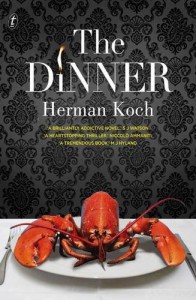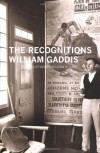Blogged Out Ma Nut
Emoticoning but with letters.
 This will be like most of my reviews: opinionated, battered out and themeless- I’d rather present you with the first 5 of my thoughts that come to mind about a book that tailor a clear argument, because it’s what I’d do if we had a conversation, and I don’t tend to write essays to my friends. I hope you don’t mind :D I may come back and add more here and there…
This will be like most of my reviews: opinionated, battered out and themeless- I’d rather present you with the first 5 of my thoughts that come to mind about a book that tailor a clear argument, because it’s what I’d do if we had a conversation, and I don’t tend to write essays to my friends. I hope you don’t mind :D I may come back and add more here and there…Thought 1: When I think of Anna Karenina, I think of parties that smell of mahogany that I’ll never be invited to where people try to outdo each other mimicking this video. “It’s not Kareninaah, it’s KareninAuuuuauauuaaughhh”. Which is misleading. If you’ve avoided reading AK because you think it’s too dense, it isn’t really, and the language is simple enough. You’ll be able to read it no problem ☺
Thought 2: I’m pretty sure someone called [a:Dostoyevsky|3137322|Fyodor Dostoyevsky|http://d.gr-assets.com/authors/1328375676p2/3137322.jpg] and [a: Tolstoy|128382|Leo Tolstoy|http://d.gr-assets.com/authors/1342945438p2/128382.jpg] the world’s first psychologists, which sounds like nonsense and I couldn’t find the quote by googling it so it probably never happened (but it did unearth this article comparing the two), but the psychological insight of AK is supreme. What was I supposed to say, it was shit? Tolstoy? Are you crazy??
Anyway, Anna behaves very much like a real person. She is indecisive, she is insecure sometimes, she jumps to conclusions, she has many qualities that cannot be pinned down into simple polar pairs of personality traits. BUT, you know what real people aren’t? Characters. Characters are many things and they are story-driving tools. Anna’s decisiony flipflopping turns AK into the most annoying will-they-won’t-they since Ross and Rachel. Similarly, real worlds are not settings. A great deal more everyday farming, horse races and politics happens in the real world than in stories. Tolstoy taught me that -_-.
Thought 3: I can confirm that the book ends, but there is a poor statistical probability of that happening to you, because 899 times out of 900 there was another bloody page after the one I finished. The first 150 were awesome! The drama escalated, there was some dark foreshadowing, and I have to admit
I cried at how cute Levin was when he proposed to Kitty (although I was a bit pissed [British for drunk]) and when Anna died, I did get a sinking feeling I haven’t had since [b:Gormenghast|258392|Gormenghast (Gormenghast, #2)|Mervyn Peake|http://d.gr-assets.com/books/1328001220s/258392.jpg|3599885]- was it worth it, though?). If you don’t have a lot of patience, give this yin a miss.
Thought 4: Some interesting things I’ve learned pushing myself to finish this book one year on from a not at all rare abandon:
1. Trust your instincts. If you don’t like a book, you don’t like it, and you’ve got plenty other things to read. The TBR lists of some of my GR friends are EPIC. If they had that little feature of iTunes it would say “You have 10 years of books on this list.” So what’s one compared to all that?
2. If you like to write, you can absolutely learn from the construction of a book that you don’t like. This could lead into a huge half-praise-rant about [b:The God of Small Things|9777|The God of Small Things|Arundhati Roy|http://d.gr-assets.com/books/1166054170s/9777.jpg|810135] but just typing the title of it is attention enough.
Thought 5: Should you read it? Only if you want to enter the inner layers of a book festival winefest so you can get close enough to touch [a:Salman Rushdie|3299|Salman Rushdie|http://d.gr-assets.com/authors/1345771006p2/3299.jpg]’s shiny head before getting kicked out (my dreams are large and my fingers crossed!).
***
Last year after abandon:
Abandoned, so I invite you to take this review as seriously as you want, given that I haven't read the whole story.
I'm not against big books at all, or even slow-paced books, I have absolutely no problem with them, but the writing was just way too hard to concentrate on- not too dense or difficult, necessarily, but just too dull. I blanked out for whole pages, and when I tuned in again, I hadn't missed any of the plot!
Enjoy the thrilling tale of farming, get lost in Tolstoy's world of what everyone was having for dinner that night, become enchanted with lengthy descriptions of horse races!
If anyone is interested in reading this, I would like to remind them that there is a film coming out soon, and we can all watch said film and pretend we read the book till the end.*
Best Regards,
Leo.
*Mission cancelled- film stars Keira Knightley. Go to plan C- who cares
 There are two kinds of poor writer smugflourishes that I don’t like:
There are two kinds of poor writer smugflourishes that I don’t like:1. The aimless simile. “Life is like a cat. You’ve got two of them and it has fur on the outside! Badum-PSH” I’ve got some constructive criticism, a great way to improve those is delete them and come up with something original.
2. Using “There are two kinds of” as an emphatic opener. There’s not two kinds of anything.
There are two kinds of classic [1]:
1. The true classic- you open it, there are words in it, that’s generally a good start, then it comes alive. The characters and setting are here as they always were and always will be. [b:The Idiot|12505|The Idiot|Fyodor Dostoyevsky|http://d.gr-assets.com/books/1327865902s/12505.jpg|6552198], [b:Wuthering Heights|6185|Wuthering Heights|Emily Brontë|http://d.gr-assets.com/books/1348940572s/6185.jpg|1565818], [b:Moby-Dick|153747|Moby-Dick|Herman Melville|http://d.gr-assets.com/books/1327940656s/153747.jpg|2409320] (sans waxing whaleskull anatomical), [b:Candide|19380|Candide|Voltaire|http://d.gr-assets.com/books/1345060082s/19380.jpg|2833018], [b:The Brothers Karamazov|4934|The Brothers Karamazov|Fyodor Dostoyevsky|http://d.gr-assets.com/books/1327882764s/4934.jpg|3393910].
2. The dusty bookshelfer- you open it, there are words in it, it’s really boring, undeniably so, but after years of climbing its way up the ivory shelves of pretention, nobody will admit it. [b:Anna Karenina|15823480|Anna Karenina|Leo Tolstoy|http://d.gr-assets.com/books/1352422904s/15823480.jpg|2507928], [b:Crime and Punishment|7144|Crime and Punishment |Fyodor Dostoyevsky|http://d.gr-assets.com/books/1347560919s/7144.jpg|3393917], [b:Madame Bovary|2175|Madame Bovary|Gustave Flaubert|http://d.gr-assets.com/books/1335676143s/2175.jpg|2766347] [2].
By the way, how any of these books are going to find a new audience of young people without being honest about this categorisation is beyond me- a (95 percentile, okay? We’re not all Mozart McEinstein Bachspeare) 15 year-old picking up [b:Crime and Punishment|7144|Crime and Punishment |Fyodor Dostoyevsky|http://d.gr-assets.com/books/1347560919s/7144.jpg|3393917] without anyone warning them that it's dull would have got 5 pages in, said "Gave it a shot! But I want to invest time in my other hobbies of drinking and smoking." Finding the right classic is not easy and not a first time thing. The saving grace of these latter classics is that a good deal of external in of and about reading will bring them alive, perhaps more so, than the immediate ones, but we do have a greater fondness for the permastories than the permamessages.
So don’t tell me you enjoyed the story of Madame Bovary, because you’ve already heard it like a gajillion times. But if you read it slowly, if you stopped to soak in the metaphors here and there, closed the book and your eyes sometimes until you saw what Monsieur Bovary’s house looked like, the full layout of the buffet, the cornicing of the opera house, you can tell me that you loved the book. For whatever reason that wasn’t something I was interested in doing, but I can appreciate the power that the words hold and their capacity to come alive with the input of the reader.
For those many readers like myself who some days don’t want to put anything in, it will seem boring. But it’s an illusion borne of laziness. It’s not a book you can pick up whenever, it demands your time and energy. It’s clearly fantastic, but I give it three stars for the mismatch of timing and reader.
Silly bitch.
The review is over but here’s a disconnected anecdote about my mum on a plane (with Bovary spoilers). I was a wee baby on a plane crying and crying and a fussy dude kept tutting and looking over, then sticking his nose back in a pristine Madame Bovary. Not much my mum could do about it though, my bambino ears were hurting. When we left the plane she said to the guy “Oh Madame Bovary! I read that in the original French. She dies at the end.” YEAH!
[1] I know, I know.
[2] Having a [a:Dostoyevsky|3137322|Fyodor Dostoyevsky|http://d.gr-assets.com/authors/1328375676p2/3137322.jpg] in both categories is a great example of why you should stick with some writers. If I read [b:Crime and Punishment|7144|Crime and Punishment |Fyodor Dostoyevsky|http://d.gr-assets.com/books/1347560919s/7144.jpg|3393917] first, I would have stopped there and told everyone that I didn’t like [a:Dostoyevsky|3137322|Fyodor Dostoyevsky|http://d.gr-assets.com/authors/1328375676p2/3137322.jpg].
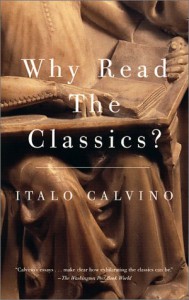 Best read per essay as a reference for whenever you read one of the mentioned texts. What I take from it is Calvino as a well-read guy going "Dude you totally gotta read this", but I doubt "Dude: You Gotta Read This- Italo Calvino's one-page list of books you should read" would sell as well :-)
Best read per essay as a reference for whenever you read one of the mentioned texts. What I take from it is Calvino as a well-read guy going "Dude you totally gotta read this", but I doubt "Dude: You Gotta Read This- Italo Calvino's one-page list of books you should read" would sell as well :-)
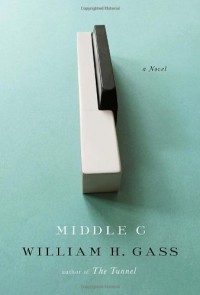 So in doing a bit of research for this review, I came across this quote:
So in doing a bit of research for this review, I came across this quote:“In this exuberantly learned bildungsroman ... internationally lauded virtuoso Gass reflects on humanity's crimes and marvels, creating his funniest and most life-embracing book yet.”
—Donna Seaman
If anyone knows Ms. Seaman, please tell her she can borrow my copy of Middle C so she can actually read it. In fact, throw an [b:Omensetter|156188|Omensetter's Luck|William H. Gass|http://d.gr-assets.com/books/1347246872s/156188.jpg|150721] and a [b:Tunnel|156182|The Tunnel|William H. Gass|http://d.gr-assets.com/books/1347747854s/156182.jpg|2339956] her way too, because from what I hear Gass ain’t no life-hugger, and the time it would take her to read those three novels in order to reformulate the above sentence is probably still less time than an average Gass-sentence first draft.
I say this because Middle C is dark and uncomfortable, and I would say brave, but at 88 I don’t think Gass is all too concerned about critics anymore. As we are told, this book deals with “variations on a theme”, and in sketching con-tagonist Joseph Skizzel we observe, amongst many things, the pain and meticulous detail that Gass puts into his writing as the same bleak sentence is re-worked over and over: “The fear that the human race might not survive has been replaced by the fear that it will endure”, an argument for which the novel presents a powerful case. Don’t take it to the bloody beach with you!
My understanding is that Gass is saddened because he will not be around when the world ends, and this desire is justified because of all the atrocities that man has committed against man. Fair enough- but perhaps it is naïve of me to think that this is a sadness borne of the frustration of trying to imagine a world that just continues after we’re gone (maybe if he hadn’t laboured on Middle C for 17 years this might have been a decent argument). Since this is not something I have ever needed to consider myself, I can’t imagine how it forms, but I’m sure that one of the things you might wish is for everything to end with you, too. We’re trapped in our own heads, the only world we know is our own, we’ll never know what it looks like otherwise, so how dare it exist without us?
As for the end of all future genocide, that might be a bit beyond my powers (!) but at least Middle C could be a well needed call to arms to make some changes in the way we ravage the earth’s resources, which is something that more than bothers me, too. We might easily groan at this tired argument, but we’ll keep hearing it until we do something (I’m on it! Carbon Capture! Way of the future!).
Only four stars and not five, because I do not and will not concur- as an amateur reviewer, I’m pretty sure that’s not how the star system should work, but they are my stars to award as I see fit! Anyway, nor do I imagine many goodreaders will agree with Gass. Why do we keep reading, why do we take chances on new authors, why do we even try our own hand at writing, if we truly believe that in today’s world art can no longer exist? Still, I think we too have often wondered if there is space for more art, if the core of humanity is truly evil, if it is all worth it, and why would these questions ever arise if we could simply dismiss them? However, it makes it no less shocking when someone with Gass’ wisdom and experience chooses to confirm these worries, and you’re put in the position of arguing yourself back into your comfortable bubble of optimism again- which I did pretty quick smart cause I didn’t like it out there!
One of the greatest joys of reading, as we know, is when you read something that so eloquently puts together your subconscious stirrings so that they can become your way of thinking. One of the most disturbing things is when you wanted to leave those thoughts where they were. Either way, I think you become a stronger person from it, but you won’t catch me recommending this book to anyone.
 Some good, some not so good, [a:Gibson|9226|William Gibson|http://d.gr-assets.com/authors/1282769227p2/9226.jpg] works better in longer tanglier stories :)
Some good, some not so good, [a:Gibson|9226|William Gibson|http://d.gr-assets.com/authors/1282769227p2/9226.jpg] works better in longer tanglier stories :)
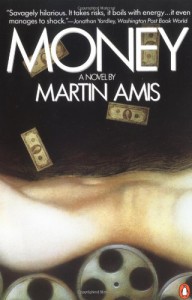 If you're having girl problems [a:Amis|11337|Martin Amis|http://d.gr-assets.com/authors/1343160070p2/11337.jpg] feels bad for you son,
If you're having girl problems [a:Amis|11337|Martin Amis|http://d.gr-assets.com/authors/1343160070p2/11337.jpg] feels bad for you son,this book is so shit I can't be bothered to rhyme Hit me!
 Great advice and ways to break down characters, setting and plot, with some systematic approaches to deconstructing stories (although mostly on screen!)
Great advice and ways to break down characters, setting and plot, with some systematic approaches to deconstructing stories (although mostly on screen!)
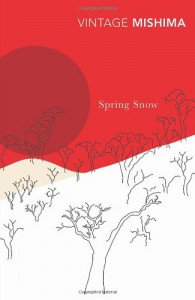 Re-read: I tried.
Re-read: I tried.First read: Abandoned. Some nice sentences, but slower than a snowflake.
(I was just told I didn't give this a chance, so I'm going back at some point :D)
 Short review: Well constructed prurient nonsense.
Short review: Well constructed prurient nonsense.Long review: one of my frownier ones, couldn’t stop myself from making this face >:(
One time I was on a train and these two women sat beside me and started talking about their day at work, I was locked in at the window and one of them just would not stop talking, I went through everything that happened that day, what she thought of all of her co-workers and which ones she suspected were gay, when she paid her rent, how much her Christmas presents were going to cost and what she bought for every family member, even to one incident where a guy at school used to call her “Jabba” because she was much fatter then and how she was getting her revenge by only giving him a small part of the work to do for the sports association cause she was team leader (“I was like I kinda should be the bigger person? But I like kinda don’t want to?” The koans of everyday life, questions with no answers.)
I cannot describe how stupid I felt after that conversation that she had on me. It was stOOpid with a capital double-O. Also how I felt after Gone Girl.
There are so many instances in life where things become so inexplicably popular by unanimous decision that I am forced to ask if I’m really alive- Les Miz (what is this?!), Queen (what is this?!), Big Bang Theory (w.i.t?!) Breaking Bad… what is this?! I can now add Ms Flynn’s scheiβterpiece to the list, and thank her for making me question my existence again*.
Cheap M. Night Shyamalan twists, artificial grittiness/ word count fulfilment via expletives, irrelevant Americanisms (after the first 50 pages I only read the dialogue because the rambling details were so indulgent,she should have just put this link in), thrown together ending which didn’t reflect all one dimensions of her characterisation at all. Also, why were there so many turn-to-camera moments in the narrative that just went by unexplained? “Now’s the time where I tell you…” Um can you see me? Do you know you’re in a book?
None of this is doing my wee psyche any good, it’s just making me angrier. So I’m not going paintballing, I’m not running a marathon, I will not go with you to Las Vegas, I’m not going to a West End musical, I’m not eating at Yo! Sushi, I’m not playing Call of Duty, I will not see The Hangover 3, I will not read any more Gillian Flynn, because time is limited and even if it wasn’t?
*I’m not saying if you enjoyed Gone Girl (nor am I judging you for doing so) that you like all of these things, but as Jim Gaffigan pointed out, “It’s all McDonalds of the soul”.
 1
1
Infante's Inferno
 So my dad just came back from Havana, he really did, just got back from having dinner with him. I said, 'I'm reading this book, maybe you want to read it when I'm finished? It's a bit like a memoir of life in Havana.'
So my dad just came back from Havana, he really did, just got back from having dinner with him. I said, 'I'm reading this book, maybe you want to read it when I'm finished? It's a bit like a memoir of life in Havana.'My dad opened up one page, read a line, wrinkled his nose. Flicked to another page, read a line, wrinkled his nose. Read the blurb, frowned.
'Where did you find this?'
'Well I saw it had rave reviews, and I was enjoying it but-'
'This book is trying too hard.'
This book is trying too hard. I enjoyed the 50 pages I read, honestly they were really good. But each page was the same. Do I want to read that same page I enjoyed 50 times 400 more times? Eh, have you seen the books waiting for me on my shelf?
F**k this book! I've got things to read :D
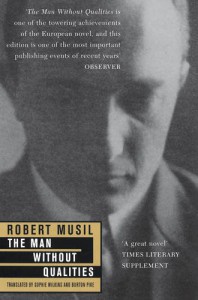 Here’s a song for you.
Here’s a song for you.The song is ‘Bros’ by Panda Bear, maybe you’ve heard of it. Anyway, have a wee listen to it now, a minute or so (or it'll make good background music while you read this review!) Okay, fine, it’s a breezy summery song, nothing too special. But did you hear the screaming, sobbing, racecar, owl hoots, or anything else that makes up the dense collection of samples? It’s blurry, messy, no two listens are alike. You pick up on different things each time. To me at least, listening to the song is like listening to life. I have no doubt it was written by a really clever guy.
It’s this same effect that The Man Without Qualities gave me, written by a clever guy, and like reading life. Like ‘Bros’, it doesn’t really begin or end, and everything between those non-existent boundaries is a dense mess. So, quite a difficult thing to review, essentially. So you have to pick out the parts that speak to you. Back to the song for a bit, maybe you start to hear the wails, screams, animals, but then you think… is that the hiss of a snake, a match being lit, a fuse? Are those children laughing or crying? Probably depending on who you are, you catch some parts, not others, and think of them one way, and not another. This brings me on to the meaning that I applied to TMWQ. It’s about the only thing I can offer by way of a review:
Pg. 188 (maybe my favourite sentence) “Arnheim had written that a man who inspects his suit is incapable of fearless conduct, because the mirror, originally created to give pleasure-as Arnheim explained it- had become an instrument of anxiety, like the clock, which is a substitute for the fact that our activities no longer follow a logical sequence”
What I love about this is how it makes you seriously reevaluate two everyday objects and consider the influence they have upon you. Try covering up anything that wants to tell you the time (there’s a bloody lot of them), stop looking in mirrors. See what happens.
*deep breath*
Pg 328 “We can begin at once with the peculiar predilection of scientific thinking for mechanical, statistical and physical explanations that have, as it were, the heart cut out of them. The scientific mind sees kindness only as a special form of egotism; brings emotions into line with glandular secretions; notes that eight or nine tenths of a human being consists of water; explains our celebrated moral freedom as an automatic mental by-product of free trade; reduces beauty to good digestion and the proper distribution of fatty tissue; graphs the annual statistical curves of births and suicides to show that our intimate personal decisions are programmed behaviour; sees a connection between ecstasy and mental disease; equates the anus and the mouth as the rectal and the oral openings at either end of the same tube- such ideas, which expose the trick, as it were, behind the magic of human illusions, can always count on a kind of prejudice in their favour as being impeccably scientific. Certainly they demonstrate love of truth. But surrounding this clear, shining love is a predilection for disillusionment, compulsiveness, ruthlessness, cold intimidation, and dry rebuke, a spiteful predilection, or at least an involuntary emanation of such kind.”
Here we have the dichotomy of science as a reasoning tool, demonstrating how little it actually helps us just to live. Man cannot live by science alone.
Pg. 409 “Science is possible only where situations repeat themselves, or where you have some control over them… A cube would not be a cube if it were not just as rectangular at nine o’clock as seven…. if you had never seen the moon before you’d think it was a flashlight. Incidentally, the reason God is such an embarrassment to science is that he was seen only once, at the Creation, before there were any trained observers around.”
This quote best shows where Musil tries to blend mysticism with science, which I think is a brilliant idea, and something that is considered quite a contemporary movement ([a:David Foster Wallace|4339|David Foster Wallace|http://d.gr-assets.com/authors/1358332401p2/4339.jpg] stating that ‘You get to choose what to worship’, or [a:Alain de Botton|13199|Alain de Botton|http://d.gr-assets.com/authors/1189753902p2/13199.jpg]’s [b:Religion for Atheists|12576334|Religion for Atheists A Non-Believer's Guide to the Uses of Religion |Alain de Botton|http://d.gr-assets.com/books/1327225900s/12576334.jpg|16644915], all three of them are on to something).
And two instances of him referencing awesome things other people said:
Pg 386 “You know what Nietzsche says? Wanting to know for sure is like wanting to know where the ground is for your next step, mere cowardice. One has to start somewhere to act on one’s intentions, not just talk about it.”
I love this because “wanting to know where the ground is” is introduced as preposterous, not generally how it is thought of, but it is. We take for granted when we walk that there’s something there. But maybe we all live with more risk than we think. It’s correcting the attitude. Back to [a:de Botton|13199|Alain de Botton|http://d.gr-assets.com/authors/1189753902p2/13199.jpg], this time [b:How Proust Can Change Your Life|23420|How Proust Can Change Your Life|Alain de Botton|http://d.gr-assets.com/books/1320528867s/23420.jpg|14280396], he argues that when you read classics, you are collecting pairs of glasses through which you see the world with different eyes. In this case, albeit not a direct Musil quote, I think you see a world with an accelerated risk all around, in every action, which makes you feel brave, since you’ve been being brave all along, just by living. I find that empowering.
Pg 1030 “The English writer Surway… distinguishes five [steps] in the process of successful reasoning: (a) close observation of an event, in which the observation immediately reveals problems of interpretation; (b) establishing such problems and defining them more narrowly; (c) hypothesis of a possible solution; (d) logically developing the consequences of this hypothesis; and (e) further observations, leading to an acceptance or rejection of the hypothesis and thereby to a successful outcome of the thinking process.”
Often all skipped.
I had no idea that this book was in part an analysis of ‘living scientifically’, but that part was clearly the most important to me. For obvious reasons, there’s not a lot of it in literature, at least that I’ve found. I think I’m supposed to be reading science fiction, but I find a lot of it- even the serious stuff- a bit cheesy and obvious, and as for how we’re supposed to live with science, unhelpful (yeah that is too much- and I still read science fiction, but mostly just for pleasure). I’m about to embark on a career in chemical engineering, and strongly believe it’s what I was meant to do. People were always born writers, singers, artists, never chemical engineers, although I went to a really interesting lecture where professors of the Medieval Studies department described us as modern day alchemists, so yes, chemical engineering is an innate calling, but up until recently we’ve just been untrained observers. I think that was my argument all along, or maybe Musil just helped me see it. But science and mysticism are knit together, you need not choose one or the other, and both may well be necessary for life satisfaction. This is what I got from The Man Without Qualities, but you can see the slant it has towards my opinion or attitude. The book is massive, perhaps you don’t agree with me or my interpretation, but you can at least see that intellectual exercise and depth that the book offers, and that’s still there for you to enjoy.
What will you see when you put on Musil’s glasses?
 If [a:E.L. James|4725841|E.L. James|http://d.gr-assets.com/authors/1308409727p2/4725841.jpg] were a gay heroin addict... okay you get the point.
If [a:E.L. James|4725841|E.L. James|http://d.gr-assets.com/authors/1308409727p2/4725841.jpg] were a gay heroin addict... okay you get the point.But there are some startling similarities. An affinity for a limited vocabulary, eroticising of stones (sand- for James, lime- for Burroughs)...
Neither of the two authors seemed to know anything about sex. Or how human beings normally interact. The flimsy character of one was hung, and the other hung most of his flimsy characters.
James taught me that the sight of black men makes you question your wardrobe (page, like... two?). Burroughs, um... well he didn't call them black men...
So yeah, I couldn't call which had the greater ability to offend, but I would certainly opt for Burroughs for a more realistic portrayal of a gentleman.
Still, I think they both inspired something.
 Starting to not have a problem at all with things I'm not the target market for.
Starting to not have a problem at all with things I'm not the target market for.This book struck me as silly like an 80s Schwarzenegger sci-fi, not necessarily a bad thing, but not what I was looking for :-)
 The world's first hardboiled sheep novel... mmm lambchops ohhhh yeah I went there
The world's first hardboiled sheep novel... mmm lambchops ohhhh yeah I went thereYou don't need to like [a:Kafka|5223|Franz Kafka|http://d.gr-assets.com/authors/1287463493p2/5223.jpg] to enjoy [b:Kafka on the Shore|4929|Kafka on the Shore|Haruki Murakami|http://d.gr-assets.com/books/1348995813s/4929.jpg|6191072], wind-up birds[1] for [b:The Wind-Up Bird Chronicle|11275|The Wind-Up Bird Chronicle|Haruki Murakami|http://d.gr-assets.com/books/1327872639s/11275.jpg|2531376] or [b:1984|5470|1984|George Orwell|http://d.gr-assets.com/books/1348990566s/5470.jpg|153313] for [b:1Q84|10357575|1Q84 |Haruki Murakami|http://d.gr-assets.com/books/1359439026s/10357575.jpg|18160093], and yet I think you need to be a little bit partial to sheep to enjoy this.
A nice journey on the route to Murakami's awesomeness, but not an essential read.
[1] That's not a thing.
Currently reading
The Recognitions
Progress:
200/935 pages
The Recognitions
In Search of Lost Time
Teach Yourself Norwegian Complete Course Package (Book + 2 CDs) [With 2 CD's]
